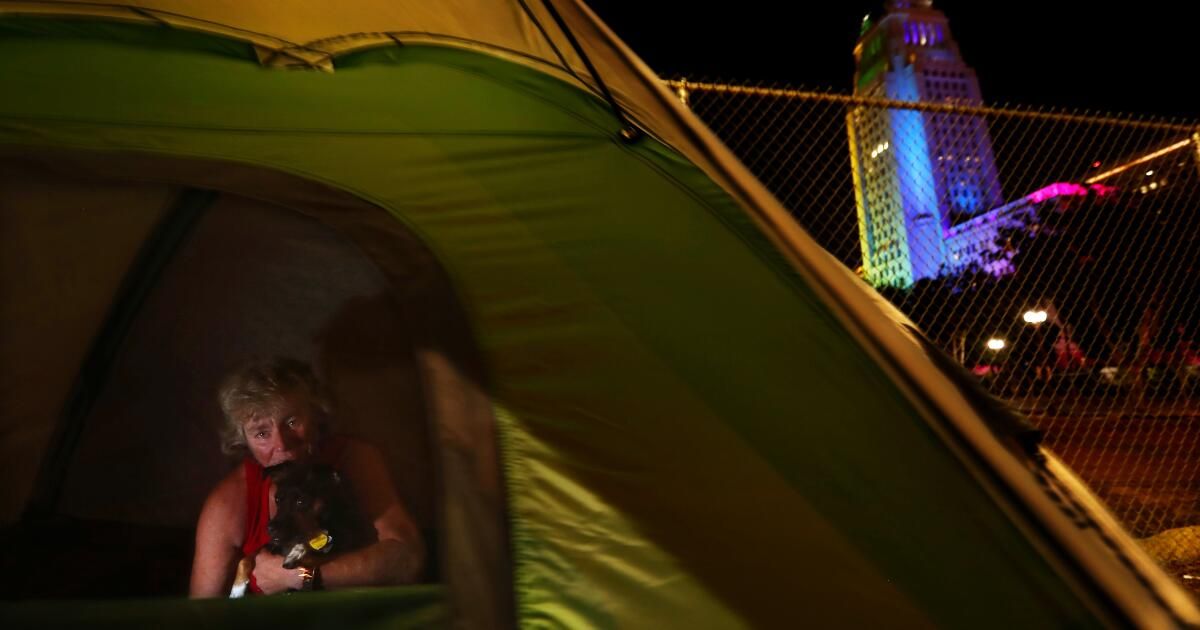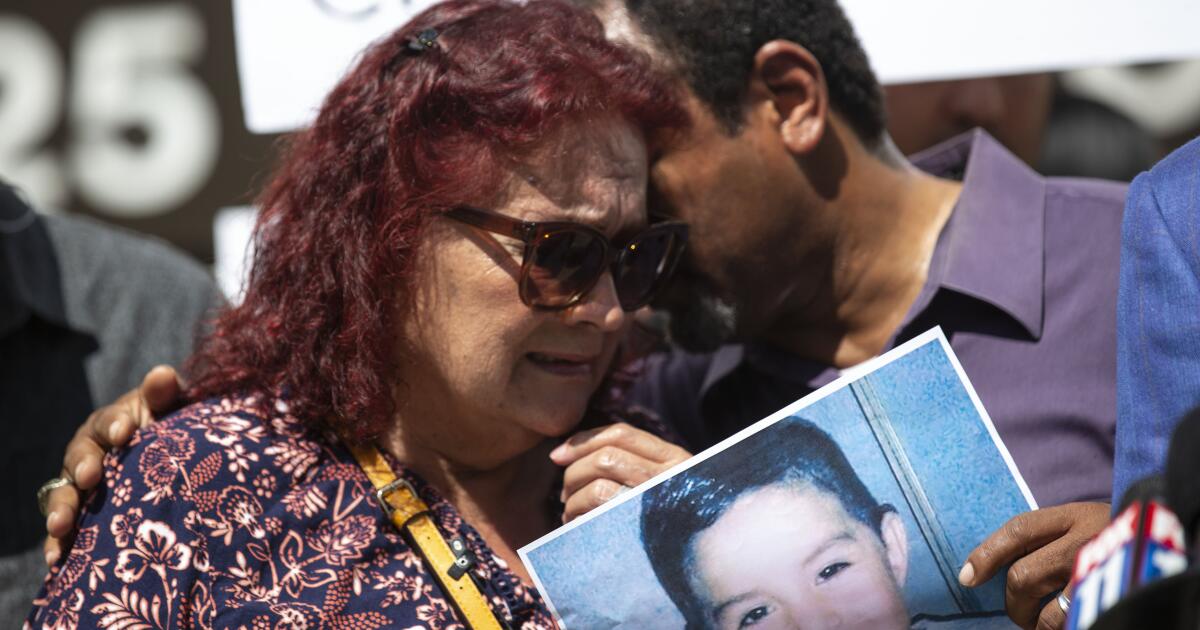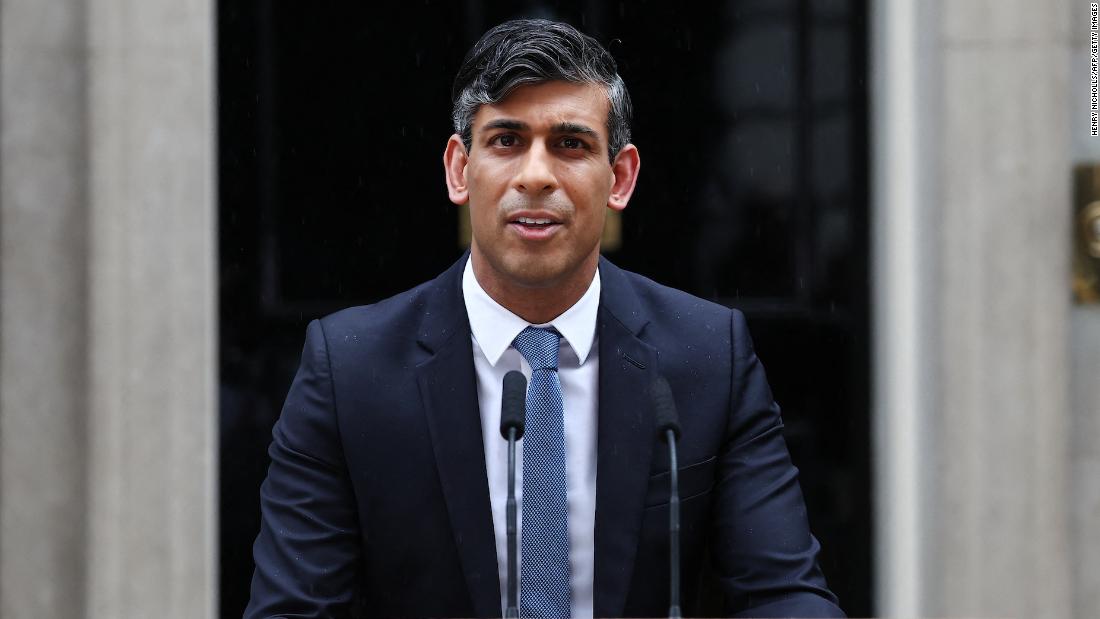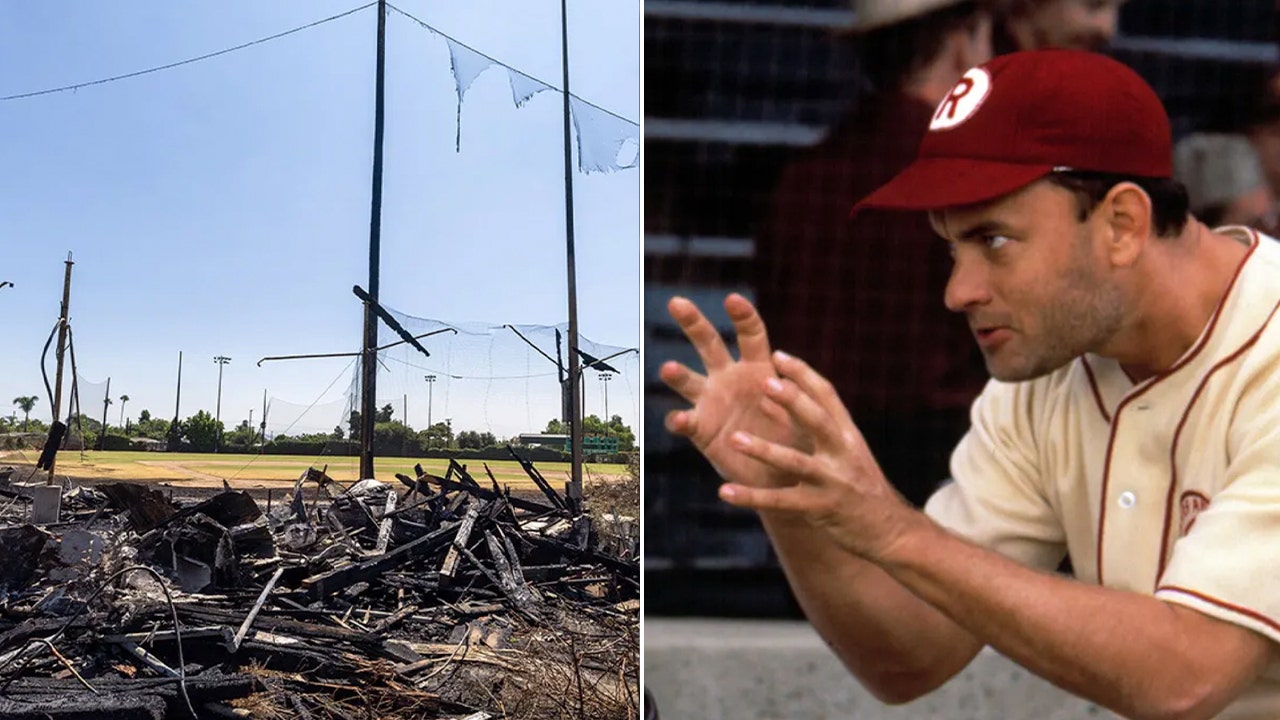Citing more than a year of procrastination by Los Angeles officials, lawyers for a group of businesses and residents are asking a federal judge to fine the city nearly $6.4 million for failing to honor a settlement agreement. of almost two years. to clear homeless encampments.
The request for sanctions comes amid growing tension between the City Council and Mayor Karen Bass over her signature Inside Safe program, which allocates $250 million for outreach and motel rentals to clean up encampments.
Council members are concerned that money earmarked for temporary motel leases will not count toward the city's commitment to the lawsuit to provide beds through 2027.
Some council members have also objected to the location of the cleanups, suggesting the mayor has favored wealthier Westside and West Valley districts over less affluent areas.
Frustration reached such a point last month that Councilwoman Monica Rodriguez and Councilman Kevin de León's chief of staff walked uninvited into a negotiation session in a judge's courtroom to see what was being discussed.
The motion, scheduled for a hearing on March 4, alleges that the city repeatedly missed deadlines and negotiated in bad faith the terms of an agreement to house at least 60% of people living on the streets in each municipal district.
Bass's office had no comment on the motion. A spokesman for the city attorney said the city would “respond in due course in court.”
For more than a year, the motion maintains, the city stalled and then attempted to withdraw from the district-by-district commitment while Bass implemented a citywide program to clear the encampments, according to the motion filed by attorneys with the LA Alliance for Human Rights.
“The City obstructed efforts to establish critical milestones for the camps and created far fewer beds than it promised,” the motion said. “This was an egregious violation of both the letter and spirit of the agreement and there must be consequences to ensure that the defendants do not feel emboldened to further ignore their commitments.”
It also asks U.S. District Judge David O. Carter, who is presiding over the four-year-old case, to order the city to submit plans within 30 days to clean up what he describes as two “high-severity areas,” Skid Row. and 45th and 59th avenues in Highland Park, which he highlighted as examples of low-income areas underserved by Bass' citywide approach.
Although not large, the two locations in Highland Park “are home to some of the most dangerous encampments in the city with regular fires (an average of 3 fires per week on Avenue 45), constant drug activity, and significant violent and property crimes ” and “ “They represent the City’s inability and/or unwillingness to direct the same level of encampment reduction energy to this working-class neighborhood as it has devoted to the wealthier West Side,” the motion said.
The lawsuit, filed in March 2020, named the city and county, alleging that both failed in their duty to provide shelter and services to unsheltered people, then estimated at 26,600 citywide and 44,200 nationwide. county. Those totals have increased to about 32,700 in the city and 55,200 in the county as of the most recent count.
The county reached an agreement in September pledging to provide 3,000 additional mental health beds, as well as pay for services in city beds.
With Eric Garcetti still in the mayor's office, the city settled much earlier, in June 2022, and agreed to a plan to determine housing needs within each of the city's 15 municipal districts to provide beds to at least 60 % of its population without shelter.
The motion detailed a tortuous series of meetings and negotiations that eventually led to the plan being approved by the City Council last month, 447 days late. The city initially met one requirement, pledging to produce 12,915 beds by June 2027, but failed to meet a second element: the number of camps it would eliminate in each municipal district.
According to the motion's timeline, the new Bass administration initially told the Los Angeles Alliance for Human Rights that it would have service providers in each council district and conduct needs assessments for each district by Oct. 1. 2023. The city missed the deadline. and instead proposed a citywide camp cleanup goal.
Bass was carrying out his Inside Safe program, which to date has cleared more than 30 encampments and placed nearly 2,000 people in temporary or permanent housing, according to his office.
In negotiating sessions late last year, the city changed its proposal several times, at one point offering to clear “a minimum of 12,000 tents, makeshift shelters, cars, vans and recreational vehicles,” but then saying it could commit to moving only 5,300 people. according to the motion.
De León said in a statement that it was “deeply concerning” that city officials “attempted to renegotiate an agreement without council approval.”
Councilman Bob Blumenfield told The Times that he heard rumors in early January that a citywide plan was being pushed and immediately contacted Bass to convey his strong opposition to abandoning the district's goals.
“She assured me that wouldn't be the case,” Blumenfield said.
On Jan. 6, the city provided what LA Alliance lawyers wanted: a breakdown of 9,800 encampment “reductions” broken down by city district and outlined in six-month periods.
But the presentation had not been shown to the City Council, which had the final say on the settlement agreement. That led Rodríguez to barge into the negotiating session.
The city's administrative office presented the proposal to the council in closed session on Jan. 31, and the council approved it, bringing the city into compliance.
Lawyers for the LA Alliance then filed their motion, saying serious sanctions were necessary. They are asking for $100,000 per week for the 447-day period.
“The citizens of Los Angeles lost a year of accountability for the City's noncompliance and obstructive conduct,” they said.
Blumenfield said he is optimistic that the mismatch between Inside Safe and the LA Alliance agreement will be resolved.
“We all have the same goals, the council members and the alliance: getting housing for people and resolutions about encampments,” he said. “Inside Safe aims to reduce encampments”.
Times staff writer David Zahniser contributed to this report.












